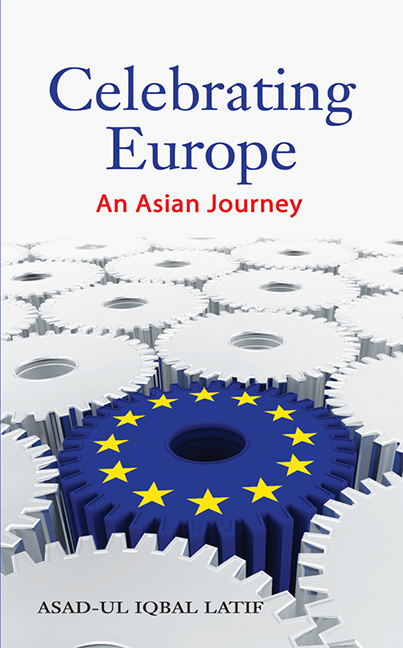Book contents
- Frontmatter
- Dedication
- Contents
- Foreword
- Acknowledgements
- Introduction: Europe
- 1 Europe Abroad
- 2 Gentiles
- 3 The Berlin Wall
- 4 Soviets of the Mind
- 5 The Secular Soul
- 6 The Leopard's Italy
- 7 England
- 8 Champagne France
- 9 Two Bengali Greeks
- 10 The Polish Hospital
- 11 Postmodern Europe
- Bibliography
- Index
- About the Author
3 - The Berlin Wall
Published online by Cambridge University Press: 21 October 2015
- Frontmatter
- Dedication
- Contents
- Foreword
- Acknowledgements
- Introduction: Europe
- 1 Europe Abroad
- 2 Gentiles
- 3 The Berlin Wall
- 4 Soviets of the Mind
- 5 The Secular Soul
- 6 The Leopard's Italy
- 7 England
- 8 Champagne France
- 9 Two Bengali Greeks
- 10 The Polish Hospital
- 11 Postmodern Europe
- Bibliography
- Index
- About the Author
Summary
loves are like empires: when the idea they are founded on crumbles, they, too, fade away But if to live means to exist in the eyes of those we love…
— Milan Kundera, The Unbearable Lightness of BeingThe defeat of Nazism in 1945 was the high point of contemporary European history. The fall of the Berlin Wall in 1989 was a comparable event, although the two events belonged to different moral frames.
Jan Kott, the Polish theatre critic and theoretician who witnessed both Nazi terror and Stalinist repression, is remembered best for his daring book, Shakespeare Our Contemporary. In his preface to the book, Peter Brook, the British director, describes how he first met Kott. It was midnight in a nightclub in Warsaw. Kott was “squashed between a wildly excited” group of students, and “we became friends at once”. A beautiful girl was arrested by mistake, he leaped to her defence and, with Brook in tow, went all the way to the Polish police headquarters to try and win her release. Brook noticed that the police were calling his new friend “professor”. On the way back home at four in the morning, he found out that Kott was a professor of drama.
Brook extends to Kott the ultimate compliment of calling him an Elizabethan. Like Shakespeare and his contemporaries, Kott's life is one in which “the poet has a foot in the mud, an eye on the stars, and a dagger in his hand”. Shakespeare and Kott are contemporaries because it is Poland in the 1960s that comes closest to “the tumult, the danger, the intensity, the imaginativeness and the daily involvement with the social process that made life so horrible, subtle and ecstatic to an Elizabethan”. Much of that energy would be suppressed in the deadly 1970s, but even then, it would be possible for the protagonist of Tadeusz Konwicki's novel, A Minor Apocalypse, to exclaim that intellectual dissidents like him, “us cosmic castaways”, are obliged “to shout through the ages into starry space”.
- Type
- Chapter
- Information
- Celebrating EuropeAn Asian Journey, pp. 36 - 49Publisher: ISEAS–Yusof Ishak InstitutePrint publication year: 2012



